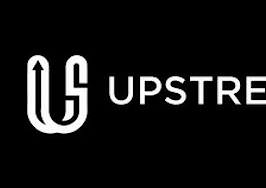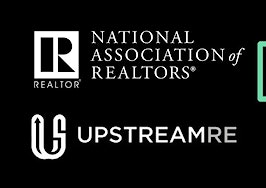This timeline of events shows how the Upstream project, an industry initiative to give real estate brokers more control over their data, has unfolded each step of the way.
For the complete story, read “What does Upstream have to show for itself?“
Oct. 4, 2013
Craig Cheatham of the large brokerage network The Realty Alliance (TRA) delivers an ominous-sounding warning and a list of broker grievances to multiple listing services (MLSs) at the Council of Multiple Listing Services (CMLS) conference in Boise, Idaho. He tells Inman that TRA has a “big initiative” in the works that “does not endanger MLSs or vendors who are not swimming upstream.” He tells Inman the phrase “swimming upstream” is “intentionally cryptic.”
Oct. 16, 2013
Cheatham tells Inman that TRA’s board of directors and stockholders voted that week to proceed with that unspecified “big initiative,” which has something to do with “real estate content” and would be “bigger than listings.”
Nov. 18, 2013
Real estate software vendor and blogger Greg Robertson says TRA intends to build a national “upstream” broker database with the aim of gaining leverage over MLSs and repackaging listing data for sale. Cheatham declined to confirm or deny Robertson’s claims.
Sept. 29, 2014
Cheatham tells CMLS conference attendees that the mysterious TRA initiative is called “Upstream” and is not intended to replace MLSs. He warns of “outside” forces not beholden to industry rules that could make agents and brokers irrelevant, and cast Upstream as an effort to avoid such a “disaster.”
Oct. 3, 2014
UpstreamRE LLC incorporates in Delaware.
March 2, 2015
Cheatham and industry consultants Victor Lund and Gregg Larson tell Clareity MLS Workshop attendees that Upstream will not be consumer-facing, will not be an MLS, and will allow brokers to put listings in a database that brokers can then send wherever they wish, including the MLS.
May 14, 2015
UpstreamRE and the National Association of Realtors announce they have signed a letter of intent to partner to create a data entry and collection platform that will function as a middleman between real estate firms and the recipients of their data, including MLSs. This will change the flow of data, making Upstream the starting point, rather than MLSs.
As part of the partnership, NAR subsidiary Realtors Property Resource (RPR) will support “key components” of Upstream, “building on RPR’s significant investment in data, technology and integrated member servicing operations over the past five years,” NAR said. Craig Cheatham, now an Upstream board member, tells Inman, “Upstream will be going full throttle sometime in 2016.”
May 16, 2015
The NAR board of directors approves up to $12 million in funding from its operating reserves of about $94 million over the next three years for a joint venture between RPR and Upstream. Half of the funding will go toward Upstream and the other half will go toward a separate RPR project, Advanced Multilist Platform (AMP).
AMP, announced this week along with Upstream, will be a standards-based, back-end MLS database augmented with RPR’s property data that will connect to various MLS “front ends” developed by tech companies and chosen by brokers. Front ends are the agent-facing part of the MLS, where agents enter and edit their listings and perform comparative market analyses and other functions.
Talking points distributed by NAR say, “UpstreamRE has been assessing technology options to develop the Upstream platform and views RPR and its AMP Project as a complimentary platform that can accelerate Upstream’s effectiveness and overall product and feature delivery.”
Oct. 14, 2015
War of words: As part of a Zillow lawsuit against realtor.com parent company Move, Zillow writes a letter saying that Move plans to partner with Upstream to create a “single national MLS with realtor.com as the portal.” Upstream denies the suggestion.
The week before, Cheatham tells CMLS conference attendees that Upstream’s governing documents prohibit Upstream from becoming an MLS and that Upstream’s vision for the future “includes MLSs that keep to that core of cooperation and compensation.”
Nov. 5, 2015
NAR and RPR announce they have signed a final contractual agreement to be Upstream’s technology vendor. The contract is for seven years. RPR will be responsible for Upstream’s development, implementation, operations, training and support. Upstream is slated to begin beta-testing in several markets in second-quarter 2016, the companies say. Upstream board member Cary Sylvester says Upstream will begin charging brokers on Jan. 1, 2018.
Nov. 30, 2015
MLS executives tell Inman they can’t adequately prepare for Upstream without answers to questions about Upstream’s revenue model, how it will handle IDX (pooled listings displayed on agent and broker websites), how MLSs and Upstream will work together to deliver clean data — and whether RPR can deliver on the project. “[L]egitimate questions should not be construed as opposition,” MLS exec David Charron says. Upstream and RPR leaders decline to provide specific answers and say many of those questions will be answered with execution.
Feb. 2, 2016
At two panels at Inman Connect New York, Upstream leaders answer questions about the project, many of them asked by panel moderator Charron. Sylvester tells conference attendees Upstream will be out in beta in May; the adding and editing of listings will happen in Upstream; and Upstream will not facilitate cooperation and compensation. “Our technology partner is RPR. We don’t have any others. RPR may subcontract some things out,” Sylvester adds.
Feb. 25, 2016
Sylvester tells Clareity MLS Workshop attendees that if an agent’s broker decides to subscribe to Upstream, that agent will no longer be able to submit or update listings in the MLS. She adds that Upstream development began in fourth-quarter 2015; alpha/beta testing will start in select markets in May; and around the end of the year, beta testing will conclude and Upstream will begin to expand to other markets.
April 26, 2016
After some in the industry suggest Upstream is an attempt to collectively cut out third-party sites such as Zillow, Trulia and realtor.com, Sylvester tells Inman that Upstream will not decide, dictate, or influence where brokers choose to distribute their data. Upstream will also not collectively negotiate data agreements for member brokers with such portals, Sylvester says.
May 9, 2016
UpstreamRE announces Alex Lange as its first president and CEO.
July 4, 2016
Lange provides CMLS with a final list of pilot/alpha testing MLSs: MLSListings (Sunnyvale, Calif.), RMLS Portland (Oregon), West Penn MLS (Pittsburgh, Pa.), North Texas Real Estate Information Service (NTREIS) and NorthstarMLS (Saint Paul).
July 28, 2016
Upstream launches a website designed to provide transparency into the project. Lange acknowledges Upstream’s “communication with the industry has been far from excellent.”
Aug. 2, 2016
Imprev releases the results of a survey of 315 broker-owners and top real estate executives that showed that 84 percent are in support of Upstream.
Aug. 10, 2016
Lange publishes a blog post answering some frequently-asked questions from MLSs. He says RPR’s platform is “comprehensive, reliable and sophisticated” and that NAR’s funding support of Upstream does not require repayment. “Upstream will begin to pay RPR for ongoing operations and support in 2018. Brokers, franchise systems and referral networks who embrace Upstream’s vision continue to generously fund all other operations,” Lange says.
Sept. 23, 2016
Lange shows CMLS conference attendees an Upstream timeline in which beta-testing is to be complete in first-quarter 2017, not at the end of 2016 as the company previously stated in February.
Nov. 5, 2016:
Lange shows MLS executives attending NAR’s annual conference in Orlando a demonstration of Upstream vendor integrations with RMLS in Portland, Oregon. There are rumors the demo isn’t “live” as portrayed by Lange and NAR – an allegation RPR President Marty Frame later tells Inman is false and “childish.” In a blog post, Lange later states, “[Upstream’s] become a broker-centric movement with a working code base and vendors lining up around the corner.”
Nov. 7, 2016
RPR CEO Dale Ross tells NAR’s board of directors both Upstream and AMP are “on time” and “under budget.”
Jan. 8, 2017
Lange announces Upstream has formed an MLS Advisory Group.
Jan. 26, 2017
Upstream holds a “town hall” webinar in which Lange says the first Upstream pilot was originally slated to be complete at the end of the first-quarter, but “will probably stretch a little bit beyond that” and that the second Upstream pilot with seven additional MLSs began in the fourth quarter and will end in second-quarter 2017.
Feb. 8, 2017
RPR announces a deal with a wholly-owned subsidiary of the Kansas Association of Realtors, Real Estate Business Resources (REBR), to beef up its agent training on Upstream. Upstream now says it will begin beta testing sometime in 2017. Lange reveals only two MLSs, Realcomp in the Detroit area and Arizona Regional MLS (ARMLS) have confirmed participation in the forthcoming second pilot. The Miami Association of Realtors MLS “has said yes, but wants to make sure it is in-place, working software before doing any work,” Lange says.
May 16, 2017
Upstream CEO Alex Lange announces a dramatic shift in strategy. To speed up the project, Upstream will allow brokers to input their listings into their MLS first and the MLS will, at broker request, send the listings to Upstream for syndication. Upstream maintains it still intends to implement its original vision to be the first point of entry for broker data, including listing data. Lange and NAR CEO Dale Stinton blame uncooperative MLSs and MLS vendors for the project’s delay.
May 17, 2017
Janine Sieja, RPR’s vice president of product management, shows broker leaders and Realtor association executives at NAR’s midyear conference a video of Upstream’s integration with RMLS in Portland, showing how an agent would submit a listing to Upstream and it would sync to RMLS. Sieja notes that the product’s current form is a “proof of concept” and will change.
May 20, 2017
The NAR board of directors approves an additional $9 million in funding for Upstream, saying the company will have to repay the funds when it hits profitability. “Users will pay Upstream for access and use of the system, and beginning in 2018, Upstream will pay RPR a licensing fee intended to cover RPR’s operational expenses related to Upstream plus a 10 percent markup,” NAR’s Finance Committee report says.
The funds — $500,000 in 2017 and $1 million in 2018 for administrative costs — will be in the form of loans and taken out of NAR’s operating reserves, which currently stand at about $75 million. The NAR board also agrees to provide Upstream with a $7.5 million backstop.
According to a business plan Upstream submitted to NAR, Upstream expects its 2018 expenses to be $7.5 million and it anticipates to bring in that same amount in revenue. But if that turns out not to be the case, NAR will provide Upstream with up to $7.5 million in loans to cover its expenses. NAR is confident in Upstream’s business plan and therefore believes the $7.5 million backstop won’t be necessary, NAR Treasurer Tom Riley told Inman.
Aug. 14, 2017
New NAR CEO Bob Goldberg tells Inman NAR will be taking a hard look at RPR at the beginning of 2018 to determine whether the value it delivers justifies the cost spent on it.
Aug. 24, 2017
Upstream publishes an updated list of its pilot markets. The 12 MLSs in the pilot are the same as those announced in the beginning of the year, but now only two will deploy Upstream’s original plan, now called “direct input.” RMLS in Portland and MLSListings in Silicon Valley will be the first to integrate with Upstream and receive broker listings from Upstream.
The other 10 MLSs will implement “broker direct feed,” which means brokers will enter listings into their MLS as they always have, and the MLS will send Upstream a listing feed at the broker’s request for syndication. The 10 MLSs are: Arizona Regional MLS; NorthstarMLS; NTREIS in the Dallas area; West Penn MLS; GSREIN in the New Orleans area; the Austin Board of Realtors; MIAMI MLS; Realcomp in Michigan; Central Virginia Regional MLS; and the Memphis Area Association of Realtors MLS.
Upstream says, “Broker Direct Feed is a temporary solution while participating MLSs work with Upstream on planning and resource requirements” for Direct Input.
Aug. 25, 2017
In a webinar, Upstream CEO Alex Lange says he may announce Upstream’s business model at NAR’s annual conference in early November and he doesn’t anticipate Upstream will charge brokers for the first half of 2018, contrary to previous statements from Upstream.
Sep. 13, 2017
CMLS releases the results of a member survey finding that 57 percent of MLSs are “not sure” they’ll participate in Upstream and 13 percent have “no interest in participating.”
Sep. 25, 2017
RPR publishes the data tables RMLS and MLSListings need to integrate with Upstream and start to prep for alpha testing, which has not yet begun.
Oct. 12, 2017
Lange tells Inman that by the end of the month, he expects to have signed commitments from several MLSes to participate in Upstream, and that these commitments represent 250,000 agents around the country. These commitments cover listing data that brokers have agreed to enter directly into Upstream (“direct input”), as well as data that brokers input first into MLSes and then send to Upstream at broker request (“broker direct feeds”).
Oct. 26, 2017
Lange tells Inman broker direct feeds (the MLS-to-Upstream route) will launch shortly after NAR’s annual conference, which runs Nov. 1-6, and alpha testing of direct input (the Upstream-to-MLS route) will be live in first-quarter 2018.
Oct. 27, 2017
Lange tells Inman RPR will start billing Upstream in 2019, not 2018. “It was amended to 2019 when we received funding at midyear,” he said.
Oct. 30, 2017
Lange tells Inman that in the past two years, Upstream has received broker contributions of more than $1 million — representing more than a thousand brokerages across the country — to help fund Upstream’s operations with verbal commitments of an additional $250,000. These contributions are interest-free, repayable loans.












